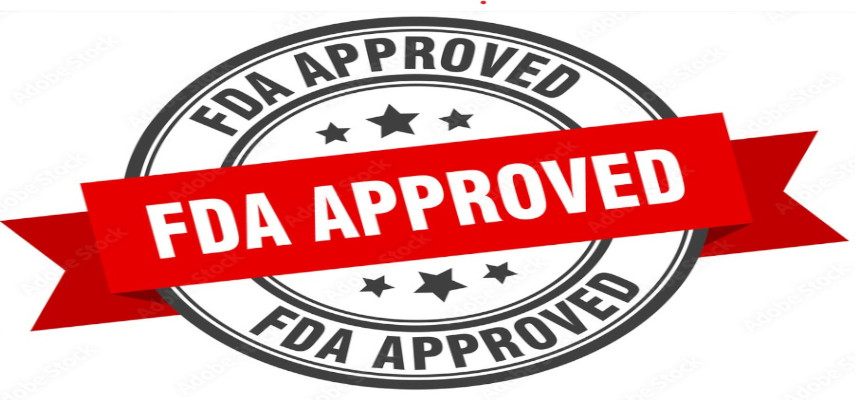Merck Ervebo gets US FDA expanded indication approval for Zaire ebolavirus in individuals 12 months of age and older
Merck, known as MSD outside of the United States and Canada, announced that the US Food and Drug Administration (FDA) has approved an expanded indication for Ervebo, which is now indicated for the prevention of disease caused by Zaire ebolavirus in individuals 12 months of age and older.
The vaccine was previously approved for use in individuals 18 years of age and older. Ervebo does not protect against other species of Ebolavirus or Marburgvirus and the duration of protection conferred by Ervebo is unknown. The effectiveness of the vaccine when administered concurrently with antiviral medication, immune globulin (IG), and/or blood or plasma transfusions is unknown. Ervebo includes a contraindication for individuals with a history of a severe allergic reaction (e.g., anaphylaxis) to any component of the vaccine, including rice protein.
“Ebola virus disease is contagious and potentially deadly in both children and adults. We’re proud of the approval of Ervebo for the prevention of disease caused by Zaire ebolavirus in children as young as 12 months old, which is another milestone in our continued commitment to help address the global health threat caused by Zaire ebolavirus,” said Dr. Eliav Barr, senior vice president, head of global clinical development and chief medical officer, Merck Research Laboratories.
Separately, on July 20, 2023, the European Medicines Agency's Committee for Medicinal Products for Human Use (CHMP) recommended the expanded approval of Ervebo [Ebola Zaire Vaccine, (rVSV?G-ZEBOV-GP) live], for active immunization of individuals 1 year of age or older to protect against Ebola Virus Disease (EVD) caused by Zaire ebolavirus. Ervebo is currently authorized for use in the European Union (EU) for individuals 18 years of age and older. The CHMP opinion will now be considered by the European Commission for amending the marketing authorization, and a final decision is expected in the third quarter of 2023.
In January 2021, Merck confirmed an agreement with UNICEF to establish the world’s first global Ebola vaccine stockpile with Ervebo to support future Zaire ebolavirus outbreak preparedness and response efforts. As of March 2023, over 500,000 doses of the licensed vaccine have been delivered to the stockpile, which is administered by the International Coordinating Group on Vaccine Provision.
Ebola virus disease is a rapidly progressive, severe, potentially fatal and transmissible haemorrhagic illness caused by infection with one of the Ebola virus species. While there are six identified Ebola virus species, the Zaire ebolavirus strain has been the leading cause of outbreaks over the last 20 years. The average fatality rate for Ebola virus disease is approximately 50% but has ranged from 25% to 90% in previous outbreaks.
Human-to-human transmission can occur via blood or bodily fluids, objects (like needles and syringes), possibly from contact with semen from a man who has recovered from Ebola, or direct contact through broken skin or mucous membranes.
Ervebo is indicated for the prevention of disease caused by Zaire ebolavirus in individuals 12 months of age and older. Ervebo is a live recombinant viral vaccine consisting of a vesicular stomatitis virus (VSV) backbone deleted for the VSV envelope glycoprotein and substituted with the envelope glycoprotein of the Zaire ebolavirus (Kikwit 1995 strain).
Ervebo was initially engineered by scientists from the Public Health Agency of Canada’s National Microbiology Laboratory and the technology was subsequently licensed by a subsidiary of NewLink Genetics Corporation now known as Lumos Pharma, Inc. Merck licensed the vaccine in 2014 and led research and development efforts in collaboration with a number of public health organizations to enable a broad clinical development programme. This project has been funded in part with federal funds from the US Department of Health and Human Services, Administration for Strategic Preparedness and Response, Biomedical Advanced Research and Development Authority (BARDA), under contract number HHSO100201700012C.
The National Institute of Allergy and Infectious Diseases (NIAID), L’institut National de la Santé et de la Recherche Médicale (INSERM), and the London School of Hygiene and Tropical Medicine (LSHTM) sponsored the PREVAC study, designed to evaluate the safety and immunogenicity of two Ebola virus disease vaccine candidates, including Ervebo, in adults and children aged 12 months and older.
Ervebo is approved in the European Union, United Kingdom, United States, Canada, Switzerland, and 10 countries in Africa.

Optimize Your trial insights with Clival Database.
Are you exhausted from the uncertainty of trial insights pricing? Clival Database ensures the clarity in the midst of the global scenario for clinical trials to you.Clival Database is one of the best databases that offers an outstanding number of clinical trial data in terms of 50,000+ molecules and from primary regulatory markets as well as new entrants like Indian and Chinese markets.
With Clival, you get accurate positioning of historical sales data, patent database, company profiling, safety & efficacy, and prediction of launch of new innovative molecules helping you to align your research and driving down the cost.
To add value, we further break down our analytics for you so that improving your operational effectiveness; optimizing your clinical trials; and offering you accurate and high-quality data at lowest possible prices becomes possible.
Elevate your trial success rate with the cutting-edge insights from Clival database.
Check it out today and make more informed sourcing decisions! Learn More!







